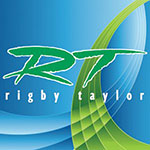“I don’t tell anyone what to do or how to do it, I just tell my story”
Related Articles
Michael Knoll gave up a prestigious corporate career to pursue a vocation in golf course management. Now, just eight years after joining Pebble Beach Resorts in California as an assistant-in-training, he’s the superintendent at Del Monte Golf Course. He talks to us about his unique path to greenkeeping, his own struggles with addiction and why they make him a stronger advocate for recovery, and his forthcoming collaboration with Tru-Turf on a new initiative to promote mental health and sobriety among greenkeepers.
Can you share your personal journey with mental health and sobriety, and how it has impacted your life and career?
I had experienced problems intermittently with mental health and substance abuse during high school and college, but because I did well at school and college and even ran my own business, outward appearances were good. People always thought I would be successful, that I would land on my feet and be fine. I would have periodic sprees of drinking and doing pills and it would go from 0-100, then I’d get sick and decide never to do that again. I could go months without drinking or using drugs, as I did in my first semester at college. On the last day of the semester I thought I’d have a drink and ended up with alcohol poisoning and unable to drive home for Christmas. I graduated with honours, so nobody really thought it was a problem.
Fast forward to my job in the corporate world, and things were completely different. I’m from the south and I was completely alone in San Francisco. I couldn’t stand the work from day one and I missed my parents, but I was taught never to quit. I started turning to drinking to take the edge off. Then mental health issues started to reappear. I had counselling for anger management in college and was diagnosed with ADHD, depression and anxiety, but I realise now I was experiencing fear and insecurity and self-medicated with alcohol and pills. I went on with my corporate career for eight-and-a-half years and I ended up getting sober a year before I quit because I thought it might help me like the job more.
I did a lot of introspective writing and sharing with people and, after a year, I came to the conclusion that the job was not for me. I wanted to do anything except that job, which was a huge revelation because my biggest fear to that point had been losing it. In sobriety, I started examining my anxiety and getting to the root causes instead of putting a band aid on things. At this point I was able to walk away from the job with no idea of what I wanted to do. I had thought I was pigeonholed by the work I had done and I didn’t realise the crown jewel, the icing on the cake, was out there. A couple of people asked me what I would do for purpose if I had all the money in the world, and it just came out of my mouth instinctively: ‘I would take care of a golf course or baseball field.’
What motivated you to become an advocate for mental health and sobriety within the greenkeeping community?
Initially, when I was helping people I was really helping myself. I discovered that, when you abandon yourself to a process and focus on helping others, your own problems go away. I never wanted to be a spokesman for sobriety and mental health; I just wanted to help that suffering person. It brings me peace. I did one podcast [Turf Today] and it’s wild how it created a positive ripple, a butterfly effect of people reaching out. I’m not trying to become an advocate; I just know that I can comfort people when they’re uncomfortable. I also think the way I’ve climbed the ladder at a very big resort like Pebble Beach is unusual, and I have a wonderful life and I think people gravitate towards that. People did not gravitate towards me before I got sober.
What led you to transition to a role in the turf industry?
I started with a love of turf and golf when I was a very young kid. My dad was my hero and he mowed a green in a big field across the street and I wanted to do it with him. Looking back, I think it all started with just wanting to spend time with him. I got into mowing neighbours’ yards and ended up building a lawn maintenance company throughout high school and college. I built it up to over 70 accounts and sold the business in my senior year of college. I got an economics and finance degree and there were a lot of influences telling me I needed to pursue that, which I did for a long time. When I realised I needed to pursue work in the golf industry I went to Poplar Creek Golf Course in San Mateo, California and offered to work for free, but coincidentally they had just approved their first part-time position in seven years the night before I turned up looking for work.
The first day at work I had to blow out a parking lot with a backpack blower and I remember thinking, ‘if this is as good as it gets, this is fantastic. Thank you, God, for giving me this.’ I had been a guy in a suit, addressing 200-plus people, making a great living and on a trajectory to do big things with that company and now I’m in a parking lot and I feel like the weight of the world is off my shoulders and I’m at one with God. So I started my journey in the golf course world willing to take direction, and there were some hurdles, but all of a sudden I had time to do service outside of work when it came to sobriety and helping others.
What challenges do greenkeepers and golf course superintendents typically face that can impact their mental health?
I think they tend to be stubborn; they don’t talk about their feelings and may feel it’s a weakness to bring vulnerability to the table. They may not realise it’s actually a strength to use your vulnerability to help someone else. A typical background in the industry is one where therapy is not common, where hard work and getting things done is everything, and as long as you show up to work and get things done, you’re fine. I don’t think drink and drug problems are worse in this industry than any other, but maybe talking about feelings and home situations is harder. They just haven’t had the afforded luxury of other professions, where people are likely to have gone through private school and college, and had access to psychologists, psychiatrists and mental health advocates.
The industry has very high standards and, as greenkeepers, we impose high standards on ourselves. I know I’m super critical of myself and the golf course. I’m expecting perfection, knowing I’ll never achieve it. I see it more on the pro side: they get stressed out because of high expectations, but I see it on the greens side too. We’re lucky out here that we’re in a little bubble of 12 to 15 courses and all the superintendents are really close and it’s not too stressful. It’s also easier to grow grass here compared to the rest of the country. We do work crazy long hours in this industry, 16-18 hour days during tournaments, but that can be fun. When we put on the Women’s Open at Pebble Beach we loved it; I thrived. I was like Tigger from Winnie the Pooh, but others were understandably very tired.
How do you manage stress and maintain mental well-being in your role at Pebble Beach Resorts?
A lot of businesses don’t want you to bring your personal life into work and I completely disagree with that approach and luckily I’m supported in that here. Now I’m in the position of being the superintendent at Del Monte Golf Course and I spend more time with my crew than I do with my wife. They are my family and if I open up to them, maybe they’ll open up to me. I’ve been very forthright about who I am as a person and what goes on in my life, and I share a lot with my crew. I’m a talker and in my sobriety community storytelling is what we do. I don’t tell anyone what to do or how to do it, I just tell my story.
What steps have you taken at Pebble Beach Resorts to create a supportive and open environment for discussing mental health?
We do have programmes within the company that provide support with things such as mental health problems, financial hardship, domestic violence and divorce, but I provide help in a more personal way, by sharing myself with them. I put myself out there, and I also let everyone know I’m sober so if someone needs help with that they can come to me. I share my worst stories that don’t necessarily paint me in a great light, to show it is possible to bounce back. I can also point people towards others in the sobriety community.
Can you share any specific programmes or initiatives you’ve implemented to promote mental health and sobriety among your team?
We have access to resources here, such as therapists and a medical plan that I can point them to, but maybe they just want to vent or sit in my office and cry. I can be a listening ear. I don’t have all the answers but I have experienced trauma and I have been able to help people here where they might not have been helped otherwise. I started doing story time segments in the morning, talking about myself in the hope that it gave my crew the courage to come to me when they have a problem. I hope it gives them the courage to open up and let us know about their life. I’m not a counsellor or therapist but I do also recognise when someone’s behaviour has changed and will sit that person down and find out what’s going on and if there’s anything I can do to help. Somebody was there for me at my lowest point. He accepted me and comforted me, and that was huge.
What advice would you give to other greenkeepers who may be struggling with mental health issues or considering sobriety?
Most importantly: open your mouth. Tell someone like myself, there are a lot of us out there. There are millions just like me who may stay under the radar but try to be open so we can help people. When I needed help I did a quick Google search, called a number and a guy answered the phone and picked me up from my house within 45 minutes to help me. There’s a lot of help out there but you need to get to the point of surrender, so you’re willing to change your circumstances. It might sound strange but sometimes you have to pray for more pain. Pain is a very good persuader and it will eventually make you open up and be vulnerable.
How can the golf industry as a whole better support the mental health of its employees?
We can change our language and the way we say things. I think that’s a societal thing, I don’t think it’s golf specifically. We can listen better and be more aware. If you’re in my world of sobriety you see things differently. Not everybody has that perspective. Unfortunately it took the suicide of Grayson Murray for people to look at these issues. We talked about Grayson within my department and it was enlightening for me to hear people who don’t deal with mental health and substance abuse issues talking about it. People don’t necessarily realise that those who are at high risk of suicide are the ones that tell you everything is going well and put up a façade. I think some more education is needed in the industry about what to look for. As humans we don’t want to talk about our problems, and high-level performers don’t want to show vulnerability because they think it makes them a weak person. I think more advocacy is needed, and people need to step up and be vulnerable. Being aware of your team and who they are is also crucial.
How can companies like Tru-Turf and the wider turf industry play a role in promoting mental health and well-being within the greenkeeping community?
I first got to know Tru-Turf as a company by using their equipment. We use their rollers [at Pebble Beach Resorts] and they’re pretty bulletproof! I got to know the company on a personal level when they heard me on a podcast. Since then, I’ve talked to their marketing people and I’m impressed with their human-centric approach to business. Inspired by the original podcast, I am now collaborating with Tru-Turf on a ‘Super Series’ podcast looking at mental health and substance abuse in the industry, with that human focus. I think companies like Tru-Turf stepping up and getting the message out there is huge. Putting stories of hope about people who have changed their lives out there to the people who need to hear them is so important. If you can get people’s stories of survival out there you create a spider web of people that are willing to help and have similar interests. There’s a guy that flew from the East Coast, Connecticut area, to volunteer at a PGA event at Pebble Beach and come and tell me ‘thank you’, because he had heard me on a podcast and it had made a difference to him. Without the backing of companies like Tru-Turf these things might not happen and the reach of Tru-Turf across the industry could make all the difference to people who are suffering.
What more can the industry do to destigmatise mental health issues and support those in need?
Just the way I’ve heard suicide and suicide attempts discussed has told me that these things are still stigmatised. When someone is hospitalised for suicidal feelings it’s seen as a purely negative thing, but it’s not. They’re getting help; there is hope. We need a different mind-set.
We put a lot of planning, time, money and science into creating the perfect playing surface. How much time do we put into maintaining our mental health? We need to care for our mental health the way we maintain and care for our golf course. Take a golf course and neglect it for a month and tell me what kind of facility you have, and then what happens when you start to take care of it properly. We might not see the value of it straight away, but meditation and introspective writing can help, sharing your feelings with others will help. There are all kinds of ways. The people at Tru-Turf are very enthusiastic about this idea of taking care of yourself as you do a golf course.
What are your future goals as a mental health and sobriety advocate within the greenkeeping community?
I don’t have any specific goals. My purpose in life is to help the sick and suffering, to help parents regain their child, a child to get their parent back. I don’t know who these people are or when I’m going to meet them. I don’t even know if I’ll ever know I helped them. I do my absolute best to live a life so I can help influence others so they don’t suffer any longer. There is no greater joy than seeing I have helped facilitate someone getting better. I’m just the broker who maybe got them in touch with a therapist, got them into a meeting, got them in touch with God. That’s my goal. They might have to deal with my personality quirks and sometimes me telling them the truth when they don’t want to hear it. If it means it’s going to save their life they can think I’m the biggest monster ever.
Are there any upcoming projects or initiatives you are excited about that focus on mental health and sobriety that could assist others in the turf industry?
The Tru-Turf project is the one that’s at the forefront at the moment. I think I have a different view of sobriety than what you usually hear, and Tru-turf recognise and value that. I think it’ll take the shape of storytelling and real life events. Our current political climate has got everyone, including me, frustrated and behaving differently, so I think talking about current times is an important thing. Our feelings dictate our behaviours, so we need to address our feelings. Talking about these things regularly in a public way could help someone recognise their own negative behaviours and then they can try to address the underlying cause.



































